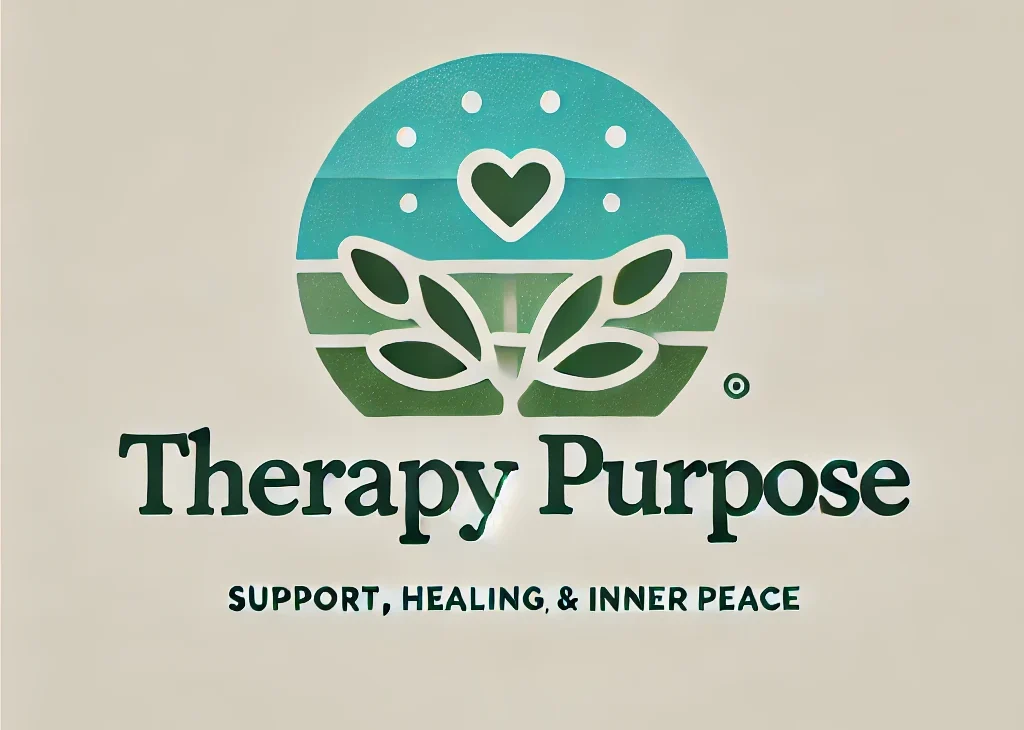Therapy offers numerous advantages, significantly enhancing individual well-being through tailored approaches. With various forms, such as Cognitive Behavioral Therapy and Humanistic Therapy, individuals can explore their thoughts and emotions more deeply. Each method uniquely contributes to personal growth, emotional healing, and improved mental health. By understanding the advantages of therapy, one can choose the best path toward a fulfilling life and stronger connections with themselves and others. Embracing these therapeutic options opens doors to a more balanced and healthier state of mind.
Understanding Therapy and Its Importance
Therapy plays a crucial role in enhancing mental health and emotional well-being. By engaging with mental health professionals, individuals can explore their feelings, thoughts, and behaviors in a safe environment. Here are some key Advantages of Therapy:
- Self-Awareness: Therapy encourages self-exploration, helping individuals identify patterns that affect their lives.
- Coping Skills: Therapists provide tools and strategies to manage stress, anxiety, or depression effectively.
- Emotional Support: Clients receive validation and support, which fosters a sense of belonging and acceptance.
- Improved Relationships: Therapy often improves communication skills and helps individuals navigate interpersonal conflicts.
Moreover, therapy is not just for individuals in crisis; it can be beneficial for anyone seeking personal growth. By understanding the Advantages of Therapy, individuals can make informed decisions about their mental health journeys. Overall, therapy serves as a valuable resource for achieving a balanced and fulfilling life.
Overview of Different Types of Therapy
Understanding the advantages of therapy becomes clearer when we explore the various approaches available. Each type serves different needs and preferences, enabling individuals to find a fitting path toward healing and growth. Here’s a look at some prominent therapy types:
- Cognitive Behavioral Therapy (CBT): Focuses on changing negative thought patterns to improve emotional well-being.
- Psychodynamic Therapy: Explores unconscious processes and past experiences to address current issues, promoting self-awareness.
- Humanistic Therapy: Encourages self-acceptance and personal growth by emphasizing individual potential and emotions.
- Group Therapy: Provides support through shared experiences within a safe community, fostering connection and mutual understanding.
- Mindfulness-Based Therapies: Integrates mindfulness practices to help individuals stay present and reduce anxiety.
- Art and Music Therapy: Leverages creative expression as a means of processing emotions, enhancing overall mental well-being.
Each therapy type offers unique advantages of therapy, catering to diverse needs, making mental health support accessible to wider audiences. Choose the approach that resonates with you for a more fulfilling journey toward wellness.
Cognitive Behavioral Therapy (CBT) and Its Benefits
Cognitive Behavioral Therapy (CBT) stands out as one of the most widely used therapy approaches today. This evidence-based practice focuses on the interplay between thoughts, feelings, and behaviors. Here are some key advantages of therapy when utilizing CBT:
- Structure and Goal-Oriented: CBT emphasizes setting specific goals, which allows clients to monitor their progress effectively.
- Short-Term Treatment: Typically lasting 5 to 20 sessions, CBT delivers substantial results in a relatively short time, making it accessible for many individuals.
- Skill Development: Clients learn practical skills and coping mechanisms that they can apply in everyday situations, reinforcing resilience.
- Focus on the Present: Unlike some therapies that dwell on the past, CBT concentrates on current thoughts and issues, making it proactive.
Comparison of Traditional vs. CBT
| Aspect | Traditional Therapy | Cognitive Behavioral Therapy (CBT) |
|---|---|---|
| Duration | Long-term | Short-term |
| Focus on Past | Yes | No |
| Patient Involvement | Moderate | High |
| Skill Acquisition | Limited | Significant |
In summary, the advantages of therapy, specifically CBT, make it an effective option for individuals seeking to improve their mental well-being. Its strategic approach empowers clients to create meaningful change in their lives.
Psychodynamic Therapy: Exploring the Past
Psychodynamic therapy offers a unique approach to mental health by delving into the subconscious. This method, rooted in the theories of Freud, helps individuals understand how their past experiences shape their present behaviors and emotions. Here are some key advantages of therapy in this regard:
- Increased Self-Awareness: By exploring thoughts and feelings, clients gain a deeper understanding of their motivations.
- Healing from Childhood Trauma: Addressing unresolved conflicts from childhood can lead to significant emotional growth.
- Improved Relationships: As clients recognize patterns in their relationships, they can foster healthier connections with others.
Comparison: Psychodynamic Therapy vs. Other Approaches
| Feature | Psychodynamic Therapy | Cognitive Behavioral Therapy (CBT) | Humanistic Therapy |
|---|---|---|---|
| Focus | Past experiences | Present thoughts and behaviors | Self-acceptance |
| Duration | Long-term | Short term | Varies |
| Core Goal | Insight into the psyche | Behavior change | Personal growth |
| Route to Improvement | Understanding unconscious | Skill acquisition | Emotional wellness |
The advantages of therapy through psychodynamic methods encourage individuals to confront and process their past. This exploration can foster profound healing, ultimately enhancing overall well-being.
Humanistic Therapy: Fostering Self-Acceptance
Humanistic therapy highlights personal growth and self-acceptance, empowering individuals to recognize their potential. This approach focuses on the individual’s experience rather than pathology, offering several advantages of therapy that promote emotional well-being:
- Self-discovery: Clients explore their feelings and aspirations, enhancing self-awareness.
- Empathy and unconditional positive regard: Therapists provide a supportive environment, fostering acceptance of oneself without judgment.
- Personal responsibility: Individuals learn to take control of their lives and choices, reinforcing their capacity for growth.
Comparison of Humanistic Therapy with Other Therapies
| Feature | Humanistic Therapy | Cognitive Behavioral Therapy | Psychodynamic Therapy |
|---|---|---|---|
| Focus | Personal growth | Behavioral change | Exploration of past |
| Therapeutic Relationship | Collaborative | Structured | Insightful |
| Self-acceptance Emphasis | Strong | Moderate | Low |
The advantages of therapy through a humanistic lens include improved self-esteem and a greater sense of purpose. Ultimately, this therapy fosters an environment where individuals can flourish, paving the way for lasting personal transformation.
Group Therapy: Connection and Community
Group therapy offers a unique set of advantages of therapy that foster connection and community among participants. Sharing experiences in a supportive environment can significantly enhance emotional well-being. Here are some key benefits:
- Shared Experiences: Participants realize they are not alone in their struggles, which can ease feelings of isolation.
- Diverse Perspectives: Different viewpoints enrich discussions, allowing individuals to learn new ways to cope with challenges.
- Social Skills Development: Engaging with others helps improve communication and interpersonal skills.
| Aspect | Individual Therapy | Group Therapy |
|---|---|---|
| Focus | One-on-one attention | Group dynamics and interactions |
| Cost | Typically higher | Usually more affordable |
| Support | Limited to the therapist | Peer support and shared experiences |
Through shared activities and mutual support, the advantages of therapy in group settings lead to enhanced emotional resilience and personal growth. Overall, group therapy provides a profound sense of belonging, making it an effective therapeutic approach for many individuals.
Mindfulness-Based Therapies: Staying Present
Mindfulness-based therapies focus on cultivating awareness of the present moment. By integrating techniques such as meditation, breathing exercises, and gentle movement, these therapies enhance mental well-being and reduce stress. Here are some key advantages of therapy in this approach:
- Stress Reduction: Mindfulness practices lower levels of cortisol, the stress hormone, promoting a sense of calm.
- Improved Focus: Regular mindfulness practice enhances concentration and cognitive flexibility, making it easier to tackle daily tasks.
- Emotional Regulation: Individuals learn to observe their thoughts and emotions without judgment, which fosters better emotional responses.
Comparison of Mindfulness-Based Therapies and Traditional Approaches
| Therapy Type | Focus | Benefits |
|---|---|---|
| Mindfulness-Based Therapy | Present moment awareness | Stress reduction, emotional regulation |
| Traditional Therapy | Past experiences and behaviours | Insight into behaviour, cognitive changes |
In summary, the advantages of therapy through mindfulness shine in their ability to anchor individuals in the present, thereby improving overall mental health and life satisfaction.
Art and Music Therapy: Creative Expression for Healing
Art and music therapy offer unique Advantages of Therapy through creative expression, enabling individuals to explore their emotions without the constraints of traditional verbal communication. These therapies harness the power of creativity to foster healing and enhance mental well-being. Here are some of the notable benefits:
- Self-Expression: Participants can express feelings that may be difficult to articulate verbally.
- Stress Relief: Engaging in creative activities reduces anxiety and promotes relaxation.
- Increased Self-Awareness: Art and music facilitate a deeper understanding of personal experiences and emotions.
- Enhanced Communication Skills: Non-verbal communication through art and music can improve overall interaction capabilities.
| Aspect | Art Therapy | Music Therapy |
|---|---|---|
| Primary Focus | Visual creativity | Auditory experiences |
| Techniques Used | Painting, drawing, sculpture | Listening, singing, playing instruments |
| Emotional Impact | Helps in visualizing emotions | Enhances mood and fosters connection |
| Session Environment | Individual or group settings | Often includes collaboration |
Overall, the Advantages of Therapy in art and music not only promote emotional healing but also empower individuals to reclaim their narrative, thereby enriching their overall mental health journey.
The Role of Therapy in Mental Health Maintenance
Therapy plays a crucial role in maintaining mental health by providing ongoing support and tools necessary for emotional resilience. Here are some key advantages of therapy in this context:
- Regular Check-Ins: Therapy offers a consistent space to discuss feelings, track progress, and address concerns before they escalate.
- Coping Strategies: Therapists equip individuals with techniques to manage stress, anxiety, and triggers, empowering them to handle life’s challenges.
- Enhanced Self-Awareness: Engaging in therapy fosters a deeper understanding of oneself, which promotes emotional regulation and decision-making.
| Aspect | Without Therapy | With Therapy |
|---|---|---|
| Emotional Awareness | Limited | Enhanced |
| Coping Mechanisms | Scarce | Diverse and Effective |
| Stress Management | Inadequate | Proactive and Resilient |
Incorporating therapy into one’s routine not only addresses current issues but also serves as a preventive measure against future mental health struggles. The advantages of therapy extend beyond just treatment, emphasizing the importance of ongoing mental health maintenance.
Measuring the Impact of Therapy on Well-being
Understanding the advantages of therapy is crucial for assessing its effectiveness on individual mental health. Various methods exist to measure these impacts, including:
Self-Reported Improvements:
- Clients often provide feedback about their emotional and psychological growth.
- Common measurements include changes in mood, stress levels, and relationship satisfaction.
Therapist Observations:
- Therapists track behavioral changes and progress through sessions.
- They note improvements in communication skills, coping mechanisms, and self-awareness.
Standardized Assessments:
- Tools like questionnaires or rating scales evaluate mental health before and after therapy.
- These instruments can quantify changes over time in areas like anxiety or depression.
Here’s a comparison table outlining these measurement methods:
| Method | Description | Advantages |
|---|---|---|
| Self-Reported Improvements | Feedback from clients about their experiences | Personalized insight into growth |
| Therapist Observations | Professional assessments of behavioral changes | Expert perspective on progress |
| Standardized Assessments | Use of quantitative measures (e.g., scales) | Objective data for comprehensive analysis |
By utilizing these techniques, individuals and professionals can clearly see the advantages of therapy, ultimately validating its role in enhancing overall well-being.


